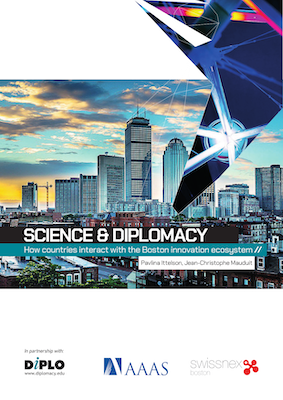Note: This article is a part of the publication ‘Science diplomacy capacity development: Reflections on Diplo’s 2021 course and the road ahead’
Science Diplomacy applies to my own work establishing the national Open Science program 2021-2024 in Switzerland during the last 4 years. I have been collaborating within the Council of National Open Science Coordinators (launched in 2019), which is a typical example of ‘boundary spanning’ within an informal network around Europe. For instance, some members of this network are engaged within ministries in their home countries, whereas in Switzerland the representatives are swiss universities (the swiss national rectors conference) and the Swiss National Science Foundation.
The question of ‘officializing’ this network appeared during our first informal meeting in Finland in 2019, where the council was kicked off and its first committee elected. The European Commission representative for Open Science attended this first informal meeting too. I took that opportunity to ask him whether the establishment of a ‘National Contact Points (NCP) for Open Science’ was on the agenda of the European Commission for Horizon Europe. The EC has established a system of NCPs for different thematic areas as well as transversal issues (Legal NCP) a long time ago, and has developed it over time mostly on transversal dimensions (e.g. for Marie-Sklodowska-Curie Actions or for European Research Council). Extending this network by officializing an ‘Open Science NCP’ would have strengthened the role of the EU as leading the Open Science agenda at a global level.
This question carries the three dimensions of Science Diplomacy. First, introducing this new element within the NCP system would have a very important impact on ‘science in diplomacy’. Especially with the advent of the UNESCO Open Science recommendation, such a measure would allow the strengthening of the involvement of the scientific community in developing national policies in response to these recommendations.
Once established and funded by the member states and the associated countries, Open Science NCPs would benefit from EC funding to cooperate in a so-called NCP project. Such networks as NCP projects have been instrumental in the past within several scientific disciplines, as NCPs play a key role in supporting the efforts of ‘diplomacy for science’ via cross-linking and cross-fertilizing international scientific cooperation among scientists from all over the world. An example I know well is the Ideal-IST network, in which I was responsible for the Work Package ‘International Cooperation’. In this context, NCPs span boundaries for the European Research Programmes within the EU as well as outside of EU frontiers.
This network expanded beyond the EU borders, with partners from Ukraine, Belarus, Mexico, India, Morocco, Algeria, and Tunisia, to give just a few examples. Finally, as the Horizon Europe programme now targets SDGs more specifically, for instance within its new so-called ‘Missions’, the establishment of a transversal NCP covering the Open Science agenda would strengthen the dimension of ‘science for diplomacy’.
Contacting the Swiss scientific attaché in Brussels to share this suggestion would certainly be an action that would contribute to Science Diplomacy. A proactive suggestion coordinated by a country like Switzerland highly interested in joining the list of associated countries would probably be worth envisioning at a diplomatic level.
As a freelance consultant, supporting researchers writing proposals for Horizon Europe, I am in a position to influence them (and to relay this influence within my own consultancy network) directly in the future with regard to the necessity to imply Science Diplomacy in their dissemination and communication strategies, to strengthen the key impacts of their project results. Cooperating in the future with GESDA and GSPI would also allow such impacts to scale-up, and to boost my motivation and promote my expertise in scientific integrity and open science practices at an international level.








